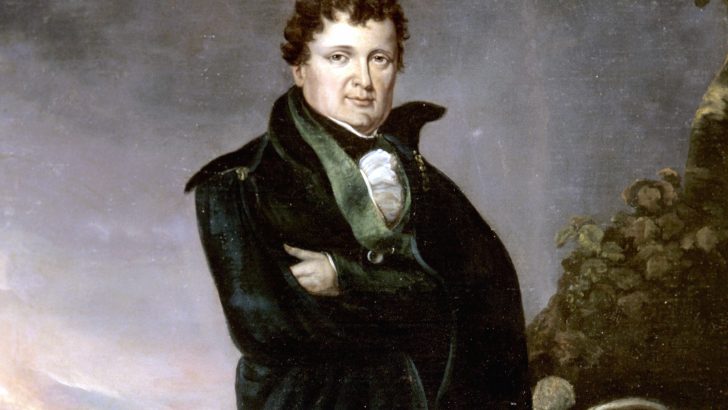A Continental European friend remarked to me that “Ireland is much more European than Britain – I’ve found that the Irish are much more at ease with their Continental neighbours than the British.”
If this is true, it is in no small measure due to the deposit of culture built up over the centuries between Irish culture and the historic Catholicity of France, Belgium, Italy and the Iberian peninsula. And yet, probably not a lot of younger people these days know about these links, or appreciate how meaningful they were.
It was almost commonplace for Irish Catholics to study in Rome, Louvain and Salamanca, among other places. Daniel O’Connell’s schooling in France – at St Omer – was typical of Catholics of his class in the 18th Century. My own father, more than 100 years ago now, completed his studies at Salamanca in Spain.
The renowned historian Margaret MacCurtain (also a Dominican nun) has just published a key book which illuminates this theme of Irish Europeanness – Ambassador Extraordinaire, Daniel O’Connell, 1595-1662, Born in Kerry, he was a significant figure in Irish-European life. He was the founder of the Irish college and the famous Bom Sucesso convent in Portugal, confessor and advisor to queens and kings, and eventually Bishop-Elect of Coimbra in Portugal.
The research for this study was done in Irish, Portuguese, Spanish, French, Italian, Latin and Tudor English – a symbol of the reach that Irish Catholic European studies had.
This openness to European culture is rooted in our history but despite the work of original researchers like Margaret MacCurtain – is it being lost in a secularising Ireland, which seems to want to forget, or even abolish, the values that constructed the identity of this nation?
***
Myers is no racist and An Taoiseach should realise that
I was dismayed that the Taoiseach Leo Varadkar (echoed in copycat style by the Tánaiste Frances Fitzgerald) saw fit to comment on the sacking of Kevin Myers by The Sunday Times: he described Myers’ comments as racist, and said the newspaper was correct to fire him.
Kevin Myers had made a maladroit allusion to Jews not being shy about asking for higher remuneration – and though misphrased, he meant it as a compliment: why not have the self-confidence to believe you’re “worth it”, as the l’Oreal advert says? Kevin has a robust turn of phrase (and has always defended Israel), but he is no racist, and it was a calumny on the part of the Taoiseach and Tánaiste to make such an implication.
A prime minister should not be quick to meddle in media matters. Varadkar is nimble and intelligent, but inexperienced and sometimes callow. Fitzgerald has seldom shown much aptitude to think for herself.
By contrast, President Higgins – though almost certainly not a soulmate of Kevin Myers – has had the dignity to withhold his opinion.
***
Fleeing an invisible enemy
Every successful film depicting an historical event reflects the spirit of its own age, and Dunkirk is an apt example. In the light of modern EU sensitivities, the wartime threat from Nazi Germany doesn’t rate a mention. We hear only about “the enemy”, unnamed.
Despite aerial dogfights, no swastika or Luftwaffe insignia appears, and anyone unversed in fighter-pilot history – as between a Spitfire and a Heinkel – would be none the wiser. The troops being evacuated from Dunkirk in France might have been fleeing from invading Martians.
Causation goes unexplained. It’s unclear why there are 300-400,000 British troops in France in the first place. There is very little back story about the characters depicted.
Kenneth Branagh does a lot of looking grittily into the distance, and Cillian Murphy does a lot of gibbering and shivering as a nerve-shattered officer. But the heavy lifting was carried out by the stuntmen. As the credits roll, the huge numbers of stuntmen involved is staggeringly evident.
I’m going to be sexist here and describe Dunkirk as a chaps’ movie. Good aerial stunts. Lots of scrambling about at sea. A tribute, surely, to the gallantry of the ‘small boats’ which sailed across the Channel and picked up the troops while the nameless ‘enemy’ closed in. But strangely meagre on human interest.


 Mary Kenny
Mary Kenny
